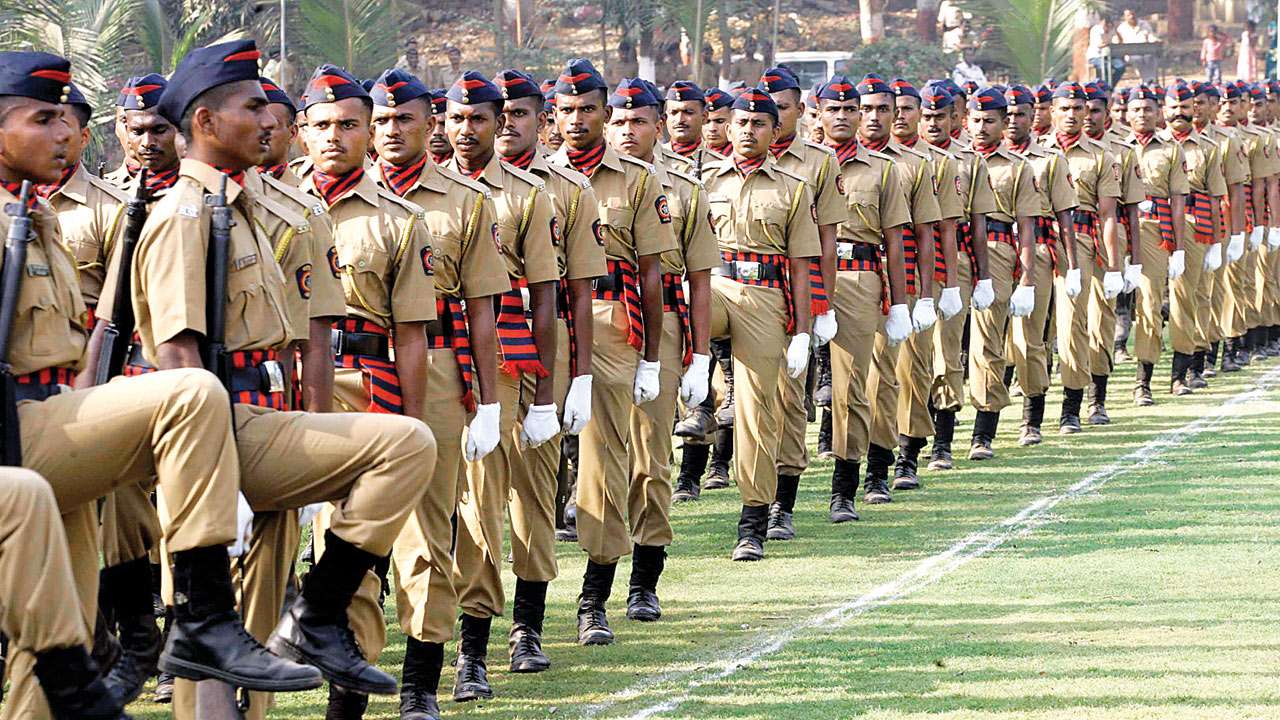
It is not unusual to find police personnel beating citizens. A video of them thrashing two Sikhs is currently doing the rounds on social media. The clip begins with the older Sikh chasing the police with a sword. When the police get hold of him and begin thrashing him, the younger Sikh rams their vehicle into the police.
Given the varied roles and responsibilities of the police in India, one would assume the powers that be would see value in training. Nationally, in 2014-15 only 1.46% of police expenditure was on training.
Is this enough, given a police personnel’s work environment is a miasma of their biases, languages, cultures, attitudes and socio-economic stratifications.
Consider the impact of feudalism, something difficult to wean a country off in a few decades of democracy. Many precepts of feudalism continue to colour Indian society and the functioning of its organs, including the police.
Even in democratic India the feudal mindset views authority, and its power wielded over others, as an unquestioned privilege of a few. The rest of the populace are supposed to accept and pay obeisance to this authority or face the threat of reprisal. Policemen often function on similar lines.
One manifestation of the traditional functioning of authority within today’s police is the willingness to use its abilities to coerce, instead of protecting. This is done by weaponising laws against the citizen. There are enough stories of postings to prime police stations being auctioned because of the quantum of ‘hafta’ that can be squeezed out of local business in that jurisdiction.
However, freedom and democracy have given the common person the opportunity to break free from the stranglehold of feudal diktats. However, this freedom from the generationally-imposed subservience has been taken to extremes to include disavowing and dispensing with law and order and cooking a snook at the police and other forms of authority. It would almost seem that the increase in sense of liberty is directly proportional to the number of rules ignored or broken.
Indian’s have a skewed relationship with power and its trappings. They all desire it but they despise, and undermine, those who have it. Simultaneously, they are pragmatic enough to see the benefits of being obsequious to those who wield power.
Thus the battle between the Indian’s attitude towards authority and law and order and the sense of old-style privilege that those in authority assume they have is unavoidable.
This disorder that afflicts Indian society is made worse by the snail-paced working and amorphous machination of the other organs of law. The judicial process is a dark tunnel with no light at the end of it. Who would want to willingly engage with a system that has 3.5 crore pending cases in subordinate courts?
Is it any wonder then that both the police and the common person would rather avoid paperwork and the soul-sapping routine of being present for court hearings? In some ways, their conniving does a favour for the overburdened judicial process by finding other ways to resolve matters.
Thus the police and the common person tango. The police use the threat of court cases to extract bribes and the common person willingly succumbs to such threats knowing what the future holds if the bribe is not paid.
Besides bribery, the other way in which police perform the duties of judge and executioner is when they beat people. One could argue that this option undoubtedly provides a quick resolution to an issue.
It could also be that the police see this as an alternative to the ineffectiveness of the courts. On the other hand, such beating could be a symptom of their unwillingness to complete paperwork, which converts them into hamsters on the legal treadmill.
It would not be wrong to assume that policemen also believe the public beatings are not just punishment for the crime committed, but serve a greater social purpose, as a deterrent for society at large. Such acts may also forestall any possible increase in police work in the future.
One can image the pressure on policemen given the ratio of policemen to 1,00,000 people is either 138 or 141 depending on who you want to believe. Who wouldn’t want an easy way out?
I have intervened in two such incidents in Delhi where everyone else remained mute spectators. Does it go to show that people don’t seem to mind, and are even gratified by this form of instant justice?
There is another reason for such violence. When the common person questions or undermines a policeman’s authority, it is seen as an assault to their feudal tinged self-image. The beatings are a cathartic way to regain the lost respect and instil fear so that such transgressions are not repeated.
Such events are understandable, though not justifiable when one looks at the lower ranks of the police force. Many come from less-privileged families and therefore may have only experienced the feudal concept of power and authority before joining the police force.
In a turn of events, the same society and institutions that ignored and subjugated them now gives them the accoutrements of power and the authority to wield it over them. No amount of training can undo the subliminal teaching of their pre-police life experiences, which they then re-enact intheir new avatar.
The police force is not only combating criminals and lazy citizenry but is also fighting against entrenched mindsets and their own circumstances.
How successful will adding curriculum to police training be, if the environment that they work in makes such training redundant and ineffective? It is not enough to train the police force. The entire law and judicial machinery need to be overhauled, as does the mindset that besets Indian society.
Author has worked in the development sector